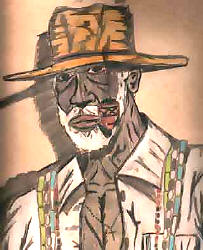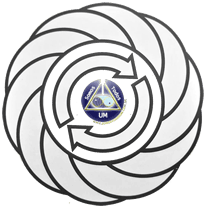Understanding How the Brain Speaks Two Languages

Autor IZEF
Assunto Corpo e MenteAtualizado em 7/25/2013 2:11:35 PM
Understanding How the Brain Speaks Two Languages
Hablan dos idiomas? You should, if you know whats good for you
Learning to speak was the most remarkable thing you ever did. It wasnt just the 50, 000 words you had to master to become fluent or the fact that for the first six years of your life you learned about three new words per day. It was the tenses and the syntax and the entire scaffolding of grammar, not to mention the metaphors and allusions and the almost-but-not-quite synonyms.
But you accomplished it, and good for you. Now imagine doing it two or three times over - becoming bilingual, trilingual or more. The mind of the polyglot is a very particular thing, and scientists are only beginning to look closely at how acquiring a second language influences learning, behavior and the very structure of the brain itself. At a bilingualism conference last weekend convened by the Lycée Français de New York, where all students learn in both English and French, and the Cultural Services of the French Embassy, language experts gathered to explore where the science stands so far and where its heading next (disclosure: my children are LFNY students).
Humans are crude linguists from the moment of birth - and perhaps even in the womb - to the extent at least that we can hear spoken sounds and begin to recognize different combinations language sounds. At first, we dont much care which of these phonemes from which languages we absorb, which makes sense since the brain has to be ready to learn any of the worlds thousands of languages depending on where were born.
"Before 9 months of age, a baby produces a babble made up of hundreds of phonemes from hundreds of languages, " said Elisabeth Cros, a speech therapist with the Ecole Internationale de New York. "Parents will react to the phonemes they recognize from their native tongues, which reinforces the babys use of those .ed ones."
Doubling down on a pair of languages rather than just one does take extra work, but its work young children are generally not aware theyre doing. Bilingual people of all ages are continually addressing what research psychologist Ellen Bialystok of Torontos York University calls the dog-chien dilemma, encountering an object, action or concept and instantaneously toggling between two different words to describe it. Such nimble decisionmaking ought to improve on-the-fly problem solving, and studies show that it does.
Language researchers often point to the famed Stroop test, which asks subjects to look at the word red, for example, which is presented in an ink of a different color, say blue. Then they are required to say aloud or identify on a computer the ink color. That requires an additional fraction of a second to accomplish than if both the word and ink color were the same. Everyone experiences that lag, but for bilinguals its measurably shorter. "Monolinguals always need more time, " Bialystok says. "Its a lifelong advantage for bilinguals."
Excelling on the Stroop test is hardly a marketable skill, but what it suggests about the brain is something else. Sean Lynch, headmaster of the LFNY, previously worked in a multilingual school in France in which all of the students spoke French and at least one of 12 other languages, including Japanese, Russian, Italian and Spanish. As is often the case with well-endowed schools, the students, on average, outperformed their age peers academically, and its impossible to determine how much of that is due to native skill and how much to the fact that they simply have access to better teachers, books and other resources. Still, Lynch observed that these students seemed to show a greater facility with skills that relied on interpreting symbolic representations, such as math or music.
To be continued...
Cursos de Espanhol Fluente Ao Vivo®: https://www.izef.com.br/
Fonte: link
Compartilhe
IZEF. Um Idioma. Um mundo. E-mail: [email protected] | Mais artigos. Saiba mais sobre você! Descubra sobre Corpo e Mente clicando aqui. |
Deixe seus comentários:











